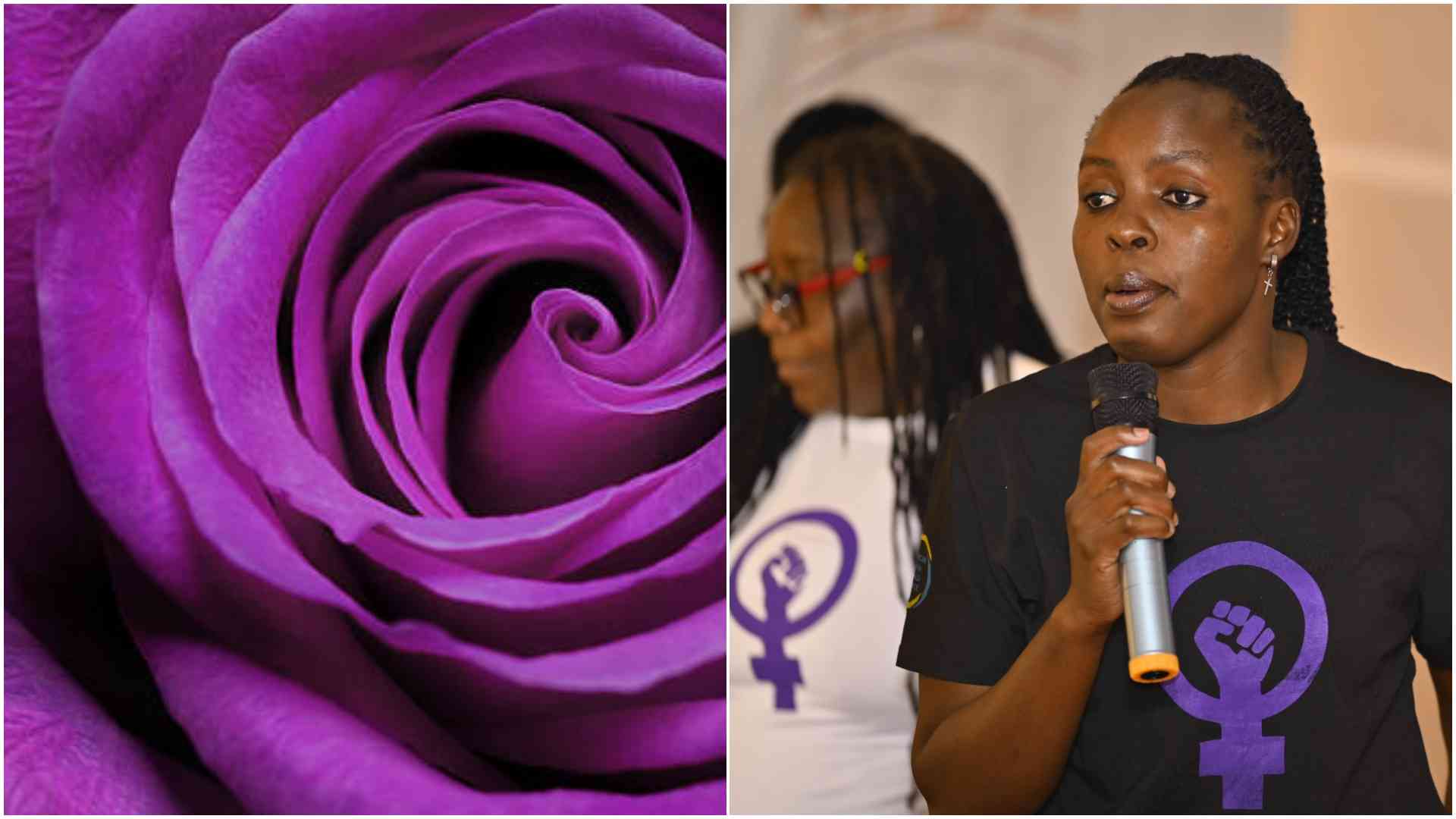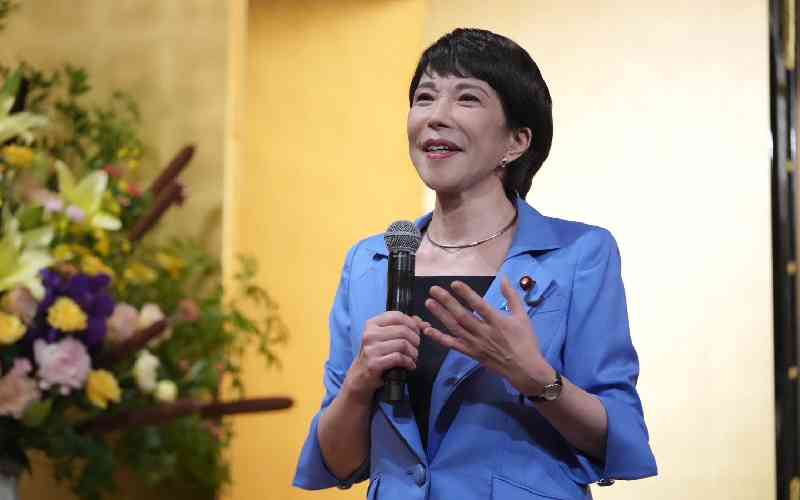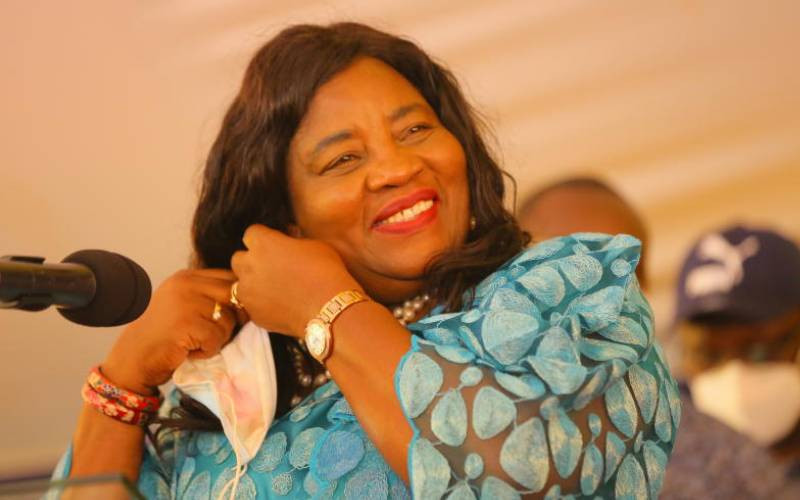
Six months ago, Judy was a happily married wife and a mother of three. Hers was a ‘perfect’ family that most of her friends and relatives envied. This is no longer the case.
All the great memories she had built together with her partner and her children’s father were erased one gloomy night when he hit her with an iron box fracturing her skull.
They had a fair share of their marital ups and downs in the past like any other couple does, but Judy says she doesn’t know what got into her husband that fateful night.
“Were it not for my eldest daughter who intervened and stopped her father from raining blows and punches on me, I don’t think I would be alive. By the time I got help and taken to hospital, my injured skull had bled so much I was drifting in and out of consciousness,” Judy recalls.
This was the second time her husband hit her. The first time he did it they were in their second year of marriage and through their family’s and church’s intervention, the matter was resolved and they lived happily for a long time. They made marital counseling part of their journey, and this, she says, is what glued their union together over the years.
Judy, who was in charge of the family’s hotel business in Nakuru, says everything was okay until the coronavirus pandemic hit.
“When the country was put on lockdown, the hotel industry was the first to be affected. We had to close shop to comply with the social distancing rules put in place by the government. My husband, who is an accountant in a parastatal, had secured a Sh3m loan to start the business in December last year. Just as things were starting to look up, the pandemic hit and this was the beginning of our marital woes,” she adds.
Every single day during the lockdown, John turned into a man Judy didn’t recognize– he became angry and bitter. He started shouting at their children over little matters that wouldn’t have angered him before.
“I knew all was not well when he started to avoid having dinner with the rest of the family which had been our tradition since we got our firstborn. Dinner time was sacred to us and unless he had traveled, this had always been our time to bond as a family,” she notes.
As Covid-19 took a toll on many businesses across the globe, the cracks in their marriage continued to widen, and John was no longer the lovely and caring husband that Judy had lived with for over ten years.
Minor things such as not finding his favourite pair of socks were enough of a trigger for him to explode and send shivers down their spines. He would shout and create unwarranted drama: “Things would actually get worse around the end month when most of our bills were being settled,” she adds.
Judy’s life has now been turned upside down, and even though she pressed charges against her husband, she says she is not keen on following up on the case. He was arrested and released on bond. Her major concern now is if she will ever reunite with her children who are under her husband’s care as they now live separately.
Leaving her children behind, she says, wasn’t an easy decision to make. But having spent all her savings and no source of income as coronavirus put her out of business, she knew too well she couldn’t meet their needs. Judy is currently working as a nanny in Nakuru town.
While Judy chose to walk away from her abuser, many women are stuck in abusive marriages as they are financially dependent on the same people that abuse them. For Mercy Obonyo, a mother of five, violence has been the norm in her home, and walking away has never been an option for her.

Born and raised in Kibera slum in Nairobi, Mercy says she cannot figure out any other life away from the informal settlement.
“I was born and raised in Kibera, I schooled here and this is the same place I met my husband who was also born and bred here. Where else would I go if I woke up and decided I’m tired of being beaten and humiliated?” she poses.
Since her husband closed down his carpentry workshop in May due to rent arrears, Mercy says the beatings became more frequent and he sometimes extends the violence to the children.
“I got used to it and no matter what I do, he finds a reason to be violent. Since he lost his job, I took over all the financial responsibilities in the house but he still finds a reason to hit me especially when he comes home drunk,” she adds.
She is alive to the fact that she is entangled in a domestic violence cycle but she says she cannot think of anywhere else she can run to start a new life if she chose to walk out of her marriage.
According to Dianah Kamande, also a domestic violence survivor and the founder of Come Together Widows and Orphans Organisation (CTWOO), culture has been the biggest barrier in bringing domestic violence figures down in the country.
Kamande whose husband committed suicide after he cut her 21 times on the head using a sword, regrets that many women are stuck in abusive marriages for fear of how the society reacts when they walk away.
Her story wasn’t any different. Even on her hospital bed, she was blamed for her husband’s death and how their marriage ended. This is what compelled her to come up with an outfit that would help domestic violence victims navigate the challenges that follow after walking out of an abusive union.
However, she says, convincing women that there is life beyond abusive marriages has been quite a challenge to her organisation.
“Many women will be willing and ready to start new lives away from their abusers, but once the wound heals, they forget and go back. They will only come back when it happens again and the cycle continues,” adds Kamande.
She says one of the key lessons the organisation tries to impart to domestic violence survivors is knowing their rights and knowing how to stop their abusers from infringing on them.
Kamande says between March and July, their hotlines were ringing off the hook with domestic abuse reports.
While the government put in measures to curb the spread of Coronavirus, it largely failed to prepare for the way these rules would create opportunities for abusers to terrorize their victims. Domestic violence is a pattern playing out across the globe especially now that the world is battling a pandemic.
According to government data, 45 per cent of women and girls aged 15 to 49 have experienced physical violence and 14 per cent have experienced sexual violence. Many cases are not reported to authorities and few women get justice or receive medical care.
However, the Public Service and Gender ministry has provided a toll-free helpline number, 1195, that is open day and night where victims can report abuse cases.
Some organisations such as Fida-kenya are also offering counseling and legal aid services to victims.
 The Standard Group Plc is a multi-media organization with investments in media
platforms spanning newspaper print
operations, television, radio broadcasting, digital and online services. The
Standard Group is recognized as a
leading multi-media house in Kenya with a key influence in matters of national
and international interest.
The Standard Group Plc is a multi-media organization with investments in media
platforms spanning newspaper print
operations, television, radio broadcasting, digital and online services. The
Standard Group is recognized as a
leading multi-media house in Kenya with a key influence in matters of national
and international interest.










